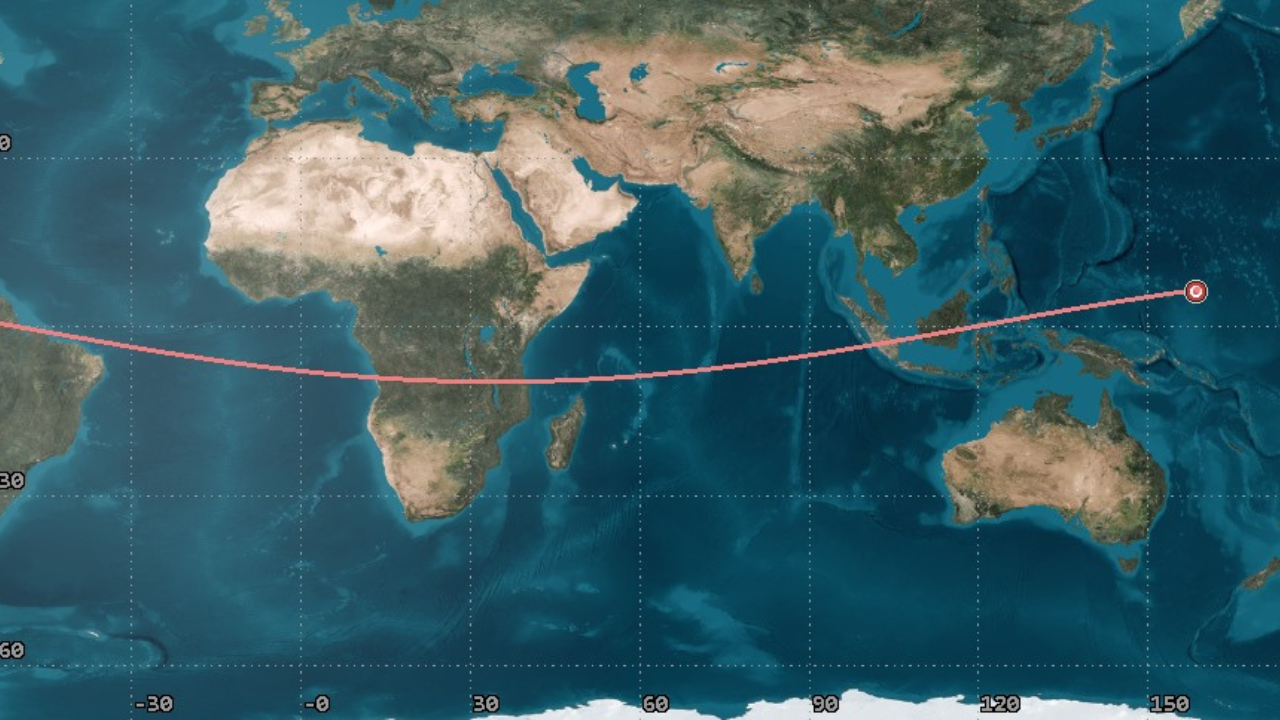BENGALURU: The Indian Space Research Organisation (Isro) Monday said it accomplished another significant milestone on March 21, when the PSLV Orbital Experimental Module-3 (POEM-3) successfully re-entered Earth’s atmosphere in a controlled manner, leaving minimal orbital debris.
The POEM-3 was part of the PSLV-C58/XPoSat mission launched on Jan 1, 2024. After deploying satellites into their intended orbits, the spent rocket stage was transformed into a stabilised platform for conducting experiments.
“The last stage of PSLV or POEM was deorbited from 650km to 350 km, which facilitated its early reentry, and was passivated to remove residual propellants to minimise any accidental break-up risks,” Isro said.
On March 21, at 7.34pm, POEM-3 re-entered Earth’s atmosphere and impacted the North Pacific Ocean , successfully achieving its mission objectives.
Before it was deorbited and eventually brought back to Earth, over the course of a month, POEM-3 carried out various technology demonstrations and scientific experiments, including tests of indigenous systems developed by startups, universities, and non-governmental entities (NGEs) through Indian National Space Promotion and Authorisation Centre (IN-SPACe) initiative.
POEM-3 was configured with nine different experimental payloads to carry out technology demonstrations and scientific experiments on newly developed indigenous systems. Out of these, six were delivered by NGEs. “The mission objectives of these payloads were met in a month,” Isro said.
The POEM platform provides a cost-effective opportunity for conducting short-duration space experiments, fostering innovation and collaboration with academia and private entities.
“Demonstrating its commitment to responsible space operations, Isro has been implementing measures to mitigate orbital debris, ensuring a sustainable environment for future space endeavours,” the space agency added.
The POEM-3 was part of the PSLV-C58/XPoSat mission launched on Jan 1, 2024. After deploying satellites into their intended orbits, the spent rocket stage was transformed into a stabilised platform for conducting experiments.
“The last stage of PSLV or POEM was deorbited from 650km to 350 km, which facilitated its early reentry, and was passivated to remove residual propellants to minimise any accidental break-up risks,” Isro said.
On March 21, at 7.34pm, POEM-3 re-entered Earth’s atmosphere and impacted the North Pacific Ocean , successfully achieving its mission objectives.
Before it was deorbited and eventually brought back to Earth, over the course of a month, POEM-3 carried out various technology demonstrations and scientific experiments, including tests of indigenous systems developed by startups, universities, and non-governmental entities (NGEs) through Indian National Space Promotion and Authorisation Centre (IN-SPACe) initiative.
POEM-3 was configured with nine different experimental payloads to carry out technology demonstrations and scientific experiments on newly developed indigenous systems. Out of these, six were delivered by NGEs. “The mission objectives of these payloads were met in a month,” Isro said.
The POEM platform provides a cost-effective opportunity for conducting short-duration space experiments, fostering innovation and collaboration with academia and private entities.
“Demonstrating its commitment to responsible space operations, Isro has been implementing measures to mitigate orbital debris, ensuring a sustainable environment for future space endeavours,” the space agency added.
Denial of responsibility! Swift Telecast is an automatic aggregator of the all world’s media. In each content, the hyperlink to the primary source is specified. All trademarks belong to their rightful owners, all materials to their authors. If you are the owner of the content and do not want us to publish your materials, please contact us by email – swifttelecast.com. The content will be deleted within 24 hours.


